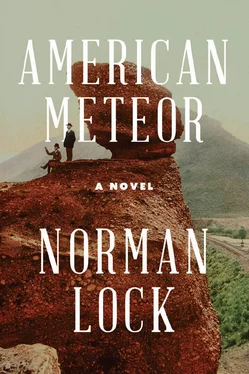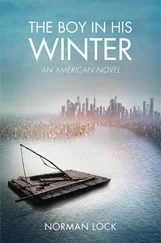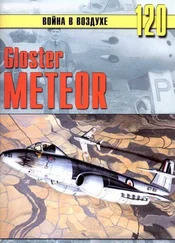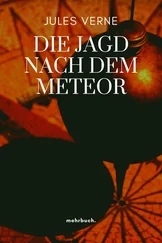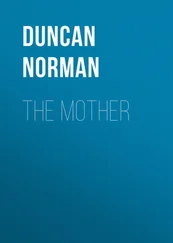In November 1861, I joined the “13th Brooklyn,” as the 87th New York Regiment was called, and went to war. My last look at Brooklyn — though not at Walt Whitman, as I would come to know my lunatic — was at the ferry slip where the regiment embarked on the steamboat Marion for Washington City, after a send-off at Fort Greene. His Honor, the mayor of Brooklyn, had declared in an aria of high-flown flapdoodle that the “flag will have to be born aloft through seas of blood,” including, as it turned out, mine. I would never again see the city of my birth and rearing, but Whitman — him I’d see in the Armory Square Hospital and, years later, in Camden. We didn’t speak or even so much as acknowledge each other on the ferry dock. He didn’t recognize the oyster boy who had unwittingly overheard his thoughts on the coming storm, in which I was now about to be engulfed and, later, would be struck down.
Whitman moved amid the crowd of hoarse-throated soldiers, setting down the departing words of some in a notebook until he was swallowed up by fluttering handkerchiefs, brandished stovepipe hats, and particles of soot that descended from the Marion ’s funnels in memory of our departure. Later, I would learn that the man I seemed all year to have dogged through the streets of lower Manhattan had recently been the editor of the Brooklyn Daily Times . He accompanied us during the last few hours of our youthfulness — suffering with us the fulminations of a righteous gang of government stooges and starched churchmen; parading with us down Myrtle Avenue into Prince Street, into Gold, and on to Vinegar Hill and the ferry depot to stand with us on the pier above the East River, where we waited impatiently to throw ourselves into the pit that hath no bottom. For so it proved to be. He did not take down my words, and I would have had none to give him.
I stood at the rail of the Marion , next to William Kidd, the regimental drummer who’d lose at Groveton something more vital to breath than an eye; and I bugled a martial air to silence the patriotic mob so that Marie Bisbee, of Brooklyn, could shout her farewell poem at us. She went at it hammer and tongs. Lucky for you, Jay, I remember just the first words:
It is the martial sound of drum,
The thrilling pipe is heard!
And now alas! the hour has come,
To say the parting word.
Farewell brave youths, to battle field
Thy country calls thee now!
May He who does the widow shield,
Watch o’er thy fervid brow.
We weren’t taken in by her horseshit — at least Little Will and I weren’t. He looked at me slyly, two fingers pinching his nostrils shut in disgust, while I blew the spit out of my horn.
Aboard the Steamer Marion, December 1861
In recollection, all our bivouacs and battlefields were alike, at least for those of us who did their living and fighting and oftentimes their dying there. War’s architects saw them from loftier vantages where, in Union blue or Confederate gray, soldiers were no more than meteors or moths, uniform, fugitive, and doomed. Soon enough, I grew to hate warfare and took no interest in its bewildering strategies or reckless campaigns, as monotonous as the tunes I blew on my bugle, which I had named Jericho in honor of Joshua’s trumpet.
When I first arrived in Lincoln — in 1882, that was, before you came out here — I played the trumpet in the town’s brass band. I wasn’t much good, and the burden of sociability proved too much for me to stay with it. But I was one hell of a bugle boy, Jay, and I wish you could’ve heard me!
The bugle — one day I’ll have its likeness carved on my headstone — tells a story of its own concerning my service with the 13th — days neither thrilling nor glorious: a dent gotten at Bull Run during the Great Skedaddle, our panicked troops snarled in the rout of picnickers who’d driven out from the capital to enjoy a festive day of slaughter; another dent gotten at Yorktown, when I was nearly trampled by a horse; another, at Oak Grove, compliments of a Johnny Reb sharpshooter who must have thought my tunes sour; and still another at Chantilly, where our regimental strength was so bled that the enlisted men among us were incorporated into the 173rd New York Infantry. The 87th Regiment having been disbanded, our officers went home to swagger in their uniforms.
A slightly built thirteen-year-old recruit, I was too weak to handle a musket. By the time I’d grown into one, I was too practiced a bugler to swap it for a firearm. The adjutants often complimented me on the clarity of my renditions of “Assembly,” “Call to Quarters,” “Boots and Saddles,” “Go Forward,” “To the Left,” “To the Right,” “About,” “Rally on the Chief,” “Trot,” “Gallop,” “Rise Up,” “Lay Down,” “Commence Firing,” “Cease Firing,” “Disperse,” and that ever-popular air among soldiers, “Retreat.” Those of the opinion that the worst a bugler had to fear was an angry boot shied at him for crowing reveille at dawn are mistaken. It required an imperturbable disposition to stand and tootle, in a commotion of men and horses, in a confusion of smoke so thick and acrid that it would blind us with tears and choke us with the bitterness of war. But this is not a story about war — not even so grisly and scarifying a one as our own Civil War. Suffice it to say that, during four years of terror and mayhem, I bugled my way, like a worm traversing a dog’s guts, through historic battles (notable for their casualties), whose hallowed grounds one day would be picturesque destinations for tourists armed with Kodaks and charged with the discipline of ice-cream-eating brats. Bull Run, Yorktown, Williamsburg, Seven Pines, Oak Grove, Malvern Hill, Harrison’s Landing, Groveton, Second Bull Run, Chantilly— those “curious panics” that became a national obsession and our common property, whether we’d fought in them or not.
We would stall outside Richmond, and — blow as heroically as I might — I could not persuade General McClellan out of his damned timidity to advance, although Jericho surely put the fear of God into many a Jeff Davis boy, who, like me, were frightened out of their wits. If I’d been armed with something that expended lead rather than breath, I’d have shot our half-pint general gladly. I’ve killed only three men during my fifty-three years aboveground in our beautiful, spacious, and altogether murderous country. I can’t say whether or not they deserved their fates, though I had good reason at the time to pack them off to glory or perdition.
Because the skirmishes and slaughters in which I played a part, however small, appear in my mind to have been all of a piece, I’ll relate the battle in which I gave up my eye for the Union and the slaves — and let it stand for them all. To be truthful, I was in no almighty hurry to benefit the latter, never having known a black man to speak to until, much later, I fell into the Delaware and was fished out by one.
But before I recount the Battle of Five Forks, Virginia, I want to say something about our boat trip from Brooklyn to Washington City. You’d have thought we were on a weekend excursion, the way we carried on. On deck, the regimental band (its members would be sent home to mothers and sweethearts after the rough going on the Peninsula) played “America the Beautiful,” “The Star-Spangled Banner,” “John Brown’s Body,” and a number of sweet airs like Stephen Foster’s “The Village Maiden” and “Beautiful Dreamer.” The bugle was considered uncouth, and bugle boys were shunned by the band’s high-toned personnel, outlandishly dressed like French soldiers in North Africa: Zouave jackets, red pants, white leggings, blue sashes tied around their waists — the insanity topped off by white turbans!
Читать дальше
